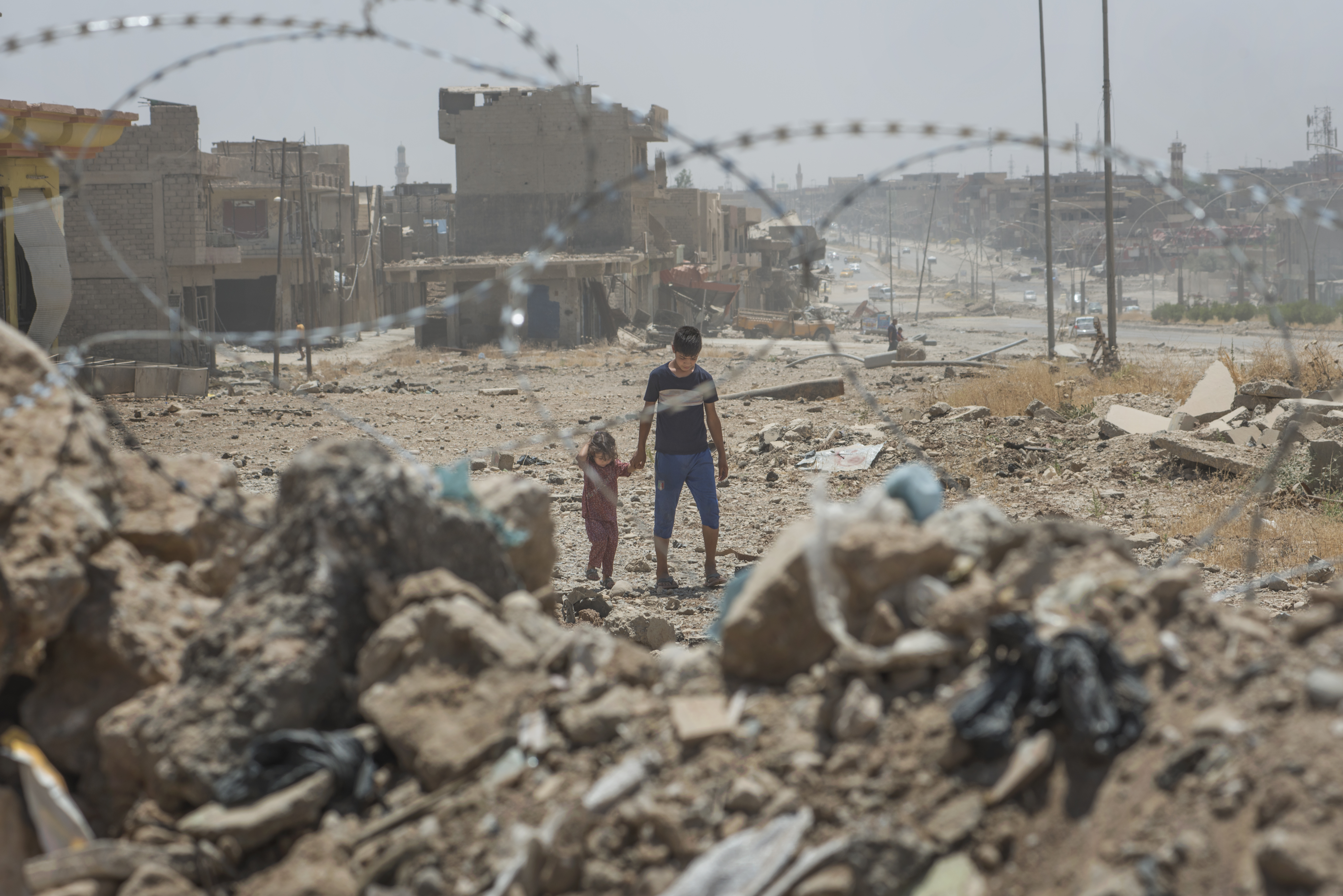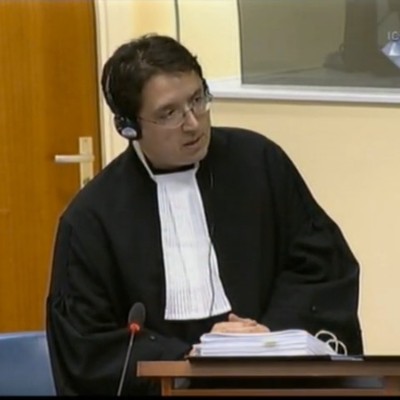What UNITAD’s Closure Means for Justice and Accountability

Published by The Lawfare Institute
in Cooperation With

In less than three months, the United Nations will close the primary international team responsible for collecting and analyzing evidence about the crimes committed in Iraq by members of the Islamic State (also known as Daesh, ISIL, and ISIS). Nine months ago, the Security Council decided to close the United Nations Investigative Team to Promote Accountability for Crimes Committed by Daesh/ISIL (UNITAD) effective Sept. 17. But as groups representing survivors of Islamic State crimes wrote earlier this year, “UNITAD was established to carry out a task that is far from completed.” But with time running short, it is not clear who will be responsible for completing that task—if anyone. Closing UNITAD with no succession plan risks wasting much of UNITAD’s work toward justice and accountability because it holds evidence that will deteriorate and its capacity-building work in Iraq is incomplete.
Background
The crimes committed by Islamic State members in Iraq are chilling and unforgettable: the sexual enslavement of thousands of Yezidi women and girls and massacres of Yezidi men, boys, and older women; the massacre of 1,500 or more Shia Muslim air force cadets at Iraq’s Camp Speicher; the targeted sexual violence, forced conversion, and cultural destruction perpetrated against Iraqi Christians; and countless others.
Evidence indicates that Islamic State members committed the crimes listed above, among others, with the intent to destroy Yezidis, Iraqi Christians, and Shiite Muslims as ethnoreligious groups. The United States, the European Parliament, and multiple sets of UN investigators consequently classified such crimes as genocidal. Few situations on Earth so clearly demand justice.
Yet precious little justice for these crimes has been meted out in the world’s courtrooms. While Iraqi prosecutors have tried many Islamic State members for terrorism, those trials have been subject to some international criticism both on procedural grounds and because they have not included charges for genocide, crimes against humanity, or war crimes. Including these additional charges, where merited, is arguably essential to fairly label Islamic State defendants’ conduct, better recognize the crimes against particular victims, and better ensure the historical memory of the Islamic State’s crimes against Iraqi Yezidis, Christians, and Shiites.
Thousands more suspected Islamic State members remain in “closed camps” such as al-Hol, where they are held in a state of extended limbo, neither free nor under indictment. Evidence indicates hundreds of victims of Islamic State crimes have also been confined in such camps, at risk of revictimization, retraumatization, and retaliation from their tormentors. And while several Islamic State members have been prosecuted for international crimes, mainly in Germany, such cases remain very, very rare.
UNITAD was supposed to help change all that. Three years after the Yezidi genocide, the Security Council established UNITAD to “support domestic efforts to hold ISIL (Da’esh) accountable by collecting, preserving, and storing evidence of acts that may amount to war crimes, crimes against humanity, and genocide” committed by the Islamic State and its members, “promote … accountability for acts that may amount to war crimes, crimes against humanity, and genocide,” and “work with survivors … to ensure their interests in achieving accountability for ISIL (Da’esh) are fully recognized.” It recruited talented, experienced international prosecutors and investigators; developed bespoke in-house platforms to process and store evidence; and advanced international criminal investigation practices.
But on the eve of its closure, UNITAD just hasn’t yet facilitated large numbers of prosecutions of Islamic State members for international crimes. (Indeed, Iraq has not yet passed a law incorporating war crimes, crimes against humanity, or genocide into its domestic criminal code, though it can prosecute defendants for murder, rape, and slavery as domestic crimes.)
Work Left to Do
The legal struggle is far from over. Many culpable Islamic State members have not been prosecuted, either for terrorism or for other atrocity crimes. And UNITAD’s pending closure raises a difficult question for the Security Council: What happens to the evidence UNITAD has collected, and will it ever be used to facilitate the prosecution of atrocity crime perpetrators?
UNITAD’s final report to the Security Council makes clear that the purpose of the UNITAD process has always been to provide the evidence it collects to the Iraqi authorities specifically. However, the report refers to evidence “which could not be delivered to the Iraqi authorities and would be kept as part of the United Nations archive.” At least two reasons are clear from this and other recent UN reports. First, UN policy interferes with providing evidence to the Iraqi authorities due to Iraq’s use of capital punishment. Second, in some cases, information providers (witnesses, states, or nongovernmental organizations) may have consented to share information with UNITAD—but not with Iraq.
It’s not clear how much of its collection UNITAD must withhold from the Iraqi authorities on these grounds. But closing UNITAD without a succession plan runs the risk of losing that portion of the collection in the crucial sense that it becomes useless in criminal proceedings.
The United Nations currently doesn’t have a plan to store the material in a manner that is sufficient to make it admissible in criminal trials. In March, Secretary-General António Guterres reported that if no additional measures are taken, the evidence held by UNITAD will be passed to the United Nations Secretariat. But, as Guterres acknowledged, “[T]he Secretariat would not be in a position to guarantee, within existing resources, that the evidence is preserved … in accordance with criminal law standards …. Therefore, it is unlikely that the evidence … could be used in the future for evidentiary purposes.” In short: Unless the United Nations implements additional measures by Sept. 17, critical evidence of atrocity crimes probably will be stored in a way that endangers prosecutors’ ability to admit it into evidence in court.
Second, investigators typically ask information providers for written consent for the investigators to share their evidence with specifically named organizations. In this instance, an investigator might have asked about UNITAD, the International, Impartial and Independent Mechanism for Syria (IIIM), Iraqi prosecutors, and other national prosecutors who might locate suspects in their territory or otherwise get the opportunity to bring a case. But it is not clear that many investigators would have asked providers for consent to share their materials with a successor to UNITAD (either a UN archive or another institution) that didn’t exist yet, or that any consent a provider gave under those circumstances would have been “informed.”
What Comes Next?
Without immediate action, UNITAD’s evidence may not be sufficiently preserved for use in trial by domestic prosecutors in Iraq or elsewhere. At a minimum, any worthwhile succession plan must ensure one or more institutions successfully carry out at least three tasks:
- Preserve and store evidence that has not been turned over to the Iraqi authorities so that it can be used in any appropriate court in the world.
- Work with the Iraqi government to incorporate international crimes like genocide into its domestic criminal code.
- Help Iraqi prosecutors and judges investigate, try, and adjudicate cases where such crimes are charged at a level that’s consistent with the importance of the cases.
UNITAD’s closure will also end its investigative work and its work with, and advocacy on behalf of, survivors. Both tasks may require additional international support.
The Guterres report refers to three proposals for institutions that could carry out these next steps in the fight for justice:
- An enhanced archiving facility within the United Nations.
- A hybrid tribunal in Iraq.
- A residual mechanism like the ones that have been established for the international tribunals for Yugoslavia and Rwanda (the IRMCT) and for the Special Court for Sierra Leone.
But it is unlikely that any of these proposals is sufficient on its own, and other public or private institutions may need to fill remaining gaps in the completion of UNITAD’s work. For instance, an archiving facility would probably not have the capacity to assist Iraqi authorities in drafting legislation incorporating atrocity crimes into the Iraqi penal code or to provide meaningful support to Iraqi prosecutors responsible for trying complex cases like the ones UNITAD was established to help build. At this late date, neither a new tribunal nor a new residual mechanism would be staffed by the time UNITAD closes for good—even in the unlikely event one was established—making any transition or handover of materials very complicated. And any new institution will need time to build trust and credibility with victims and their advocates, particularly after the international community has asked them to trust an institution that it did not allow to finish its job.
Existing international institutions may not be able to step in either. The International Criminal Court (ICC) does not have jurisdiction over Islamic State crimes in Iraq and is unlikely to ever get jurisdiction: A Security Council referral has not been forthcoming, Iraq itself has not consented to ICC jurisdiction, and there is no reason to expect either of those things to change. The UN Assistance Mission in Iraq’s mandate will end by the end of next year. While the IIIM and IRMCT have some relevant subject-matter expertise, evidence storage capacity, and experience working with domestic prosecutors, investing either one with the responsibility for completing UNITAD’s mission would require significant additional staff, resources, and local expertise—and budget. And it is not clear that handing off UNITAD’s mission to any of these institutions would be politically palatable to the key stakeholders, either to the Security Council or the Iraqi government, given that the end of UNITAD’s own mandate came at the Iraqi government’s request.
Despite these limitations, action is urgently needed—even if it is imperfect action. The sad reality is that every day the Security Council fails to define the legal status and future home of UNITAD’s evidence, Iraq does not pass legislation incorporating international crimes, and states and organizations invested in the fight for justice for Islamic State crimes do not plan how they will build Iraqi capacity to prosecute such crimes after UNITAD has closed, it becomes more likely that, in September, key evidence—and vital opportunities for justice—will be lost for good.
The author has advised several organizations that have shared evidence with UNITAD.



.jpg?sfvrsn=d5e57b75_5)
